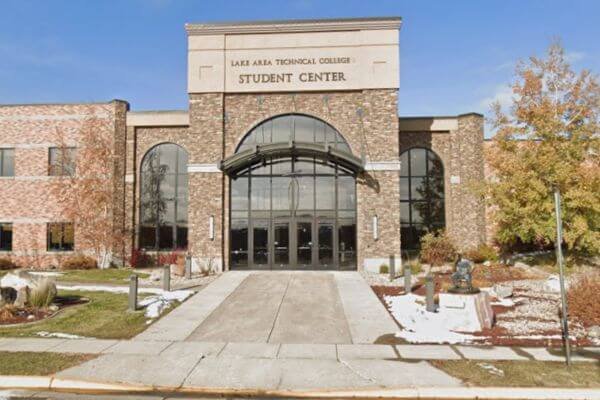The advent of technology and the internet make higher education easier than in the past. By taking online associate degree programs, you can save some money than taking traditional four-year institutions. Also, you can flexibly balance classes and assignments as planned. However, many colleges and universities offer digital learning options, leading to significant growth in online education. Our team of higher education experts at Best College Quest are one of them. We have already achieved the highest positions in the country. Even if your goal is to obtain a bachelor’s or master’s degree, our experts can help! Read on to learn about the details, including costs, quality and competence, to take an informed decision for your educational journey.
Applying to an Online Community College or Trade School
When you have identified an online community college program according to your preferences, the next step is to proceed with the application process. It typically involves preparing certain documents related to your personal and academic information. Additionally, there might be an application fee, and some associate degree programs may require an admission essay. Here is a breakdown of the application requirements:
Requirements/Prerequisites:
A high school diploma or GED certificate is typically required for admission to most associate degree programs. Some programs have some additional requirements like completing certain English or math courses. If any student lacks any requirements, they have to take remedial classes before starting the program.
Application Fee:
Each College sets its own application fee, ranging from $20 to $50. However, some schools offer free classes for students with exceptional financial needs.
Application Materials:
Along with the application fee, you will likely need to provide your high school transcripts or GED certificate as proof of your educational background. Specific programs may necessitate supplementary documents like a curriculum vitae (CV), references (letter of recommendation), or a personal statement/essay. These materials allow you to showcase your qualifications and why you should be accepted into the online community college program.
2022 Best Online Community Colleges
The rankings presented were carefully made by the Best College Quest Ranking Team and included sponsored results from our esteemed partners. We rely on the Integrated Postsecondary Education Data System (IPEDS) to ensure accuracy and relevance. However, it’s worth mentioning that program-specific information may vary, so it’s advisable to refer to the official websites of the respective institutions for the most up-to-date and accurate details.

Image caption
#1 Ivy Tech Community College
- Indianapolis, USA
- 4 years
- Online + Campus
Average Undergrad Tuition
In-state
Out-of-state
$$4,350
$8,511
Average Graduate Tuition
In-state
Out-of-state
Not provided
Not provided
ITCC, based in Indiana, provides a wide selection of 17 fully online degree programs. You can apply for criminal justice, cyber security, and software development. The application process is convenient and free, requiring applicants to submit their high school GPA, ACT, SAT, or PSAT scores with the college transcripts to take college preparation. Also, offer flexibility to students to commence their studies during any of the five start terms provided throughout the year, which occur in January, March, June, August, and October. Once enrolled, distance learners access a wide range of virtual services such as tutoring, advising, and career development resources. These resources aim to support students throughout their educational journey and assist them in achieving their academic and professional goals.

Image caption
#2 Ozarka College
- Melbourne, Arkansas
- 4 years
- Online + Campus
Average Undergrad Tuition
In-state
Out-of-state
$2,160
$4,512
Average Graduate Tuition
In-state
Out-of-state
Not provided
Not provided
The College is located in Melbourne, Arkansas and offers over 30 associate degrees and certificates, covering various fields such as allied health science and culinary arts. Out of its total student number of 1,600, around 600 students enrol in online programs or classes annually. As part of its open-door admission policy, you need to submit your official documents from high school, GED programs, or documents you attended colleges previously. To support student success, Ozarka College provides convenient online resources. Students have the option to arrange tutoring sessions online, ensuring access to academic assistance when needed. Additionally, academic advising is available through online platforms via email or phone appointments so that students can receive guidance and support remotely.

Image caption
#3 Holmes Community College
- Mississippi, USA
- 4 years
- Online + Campus
Average Undergrad Tuition
In-state
Out-of-state
$2,600
$5,180
Average Graduate Tuition
In-state
Out-of-state
Not provided
Not provided
Holmes Community College offers a variety of options for degree-seekers seeking an alternative to traditional classroom learning. The College allows students to earn online associate of arts and applied arts degrees in various fields. These include disciplines such as medical office technology, paralegal technology, coding etc. Since Holmes College has an open admission policy, they welcome all applicants who have obtained a high school diploma or GED. Holmes Community College’s online programs and participation in the Mississippi Virtual Community College network provide flexibility and convenience to students interested in achieving their educational goals online.

Image caption
#4 Eastern Gateway Community College
- Steubenville
- 4 years
- Online + Campus
Average Undergrad Tuition
In-state
Out-of-state
$3,960
$7,200
Average Graduate Tuition
In-state
Out-of-state
Not provided
Not provided
EGCC, a renowned provider of distance education in Ohio, offers a wide range of online degree programs across various fields, including health, public service and safety and many more. The College takes pride in its open-door policy. EGC College welcomed students throughout the year. Students must submit their high school or GED transcripts, as well as scores from standardized exams such as ACT, SAT, or ACCUPLACER, to apply. These requirements help evaluate the readiness and academic preparedness of prospective students. One notable benefit for working adults is the Free College Benefit program offered by EGCC. This program enables individuals to pursue a certificate or degree online without incurring any out-of-pocket costs. This opportunity allows professionals who are already doing a job to enhance their skills and knowledge while minimizing financial barriers.

Image caption
#5 Houston Community College
- Houston, Texas
- 4 years
- Online + Campus
Average Undergrad Tuition
In-state
Out-of-state
$2,904
$3,624
Average Graduate Tuition
In-state
Out-of-state
Not provided
Not provided
HCC offers a wide selection of over 60 online degree programs, catering to both academic and workforce-focused disciplines. Applicants have options to choose from a wide range of subjects, including anthropology and supply chain management. While most programs are delivered entirely online, a few courses may require occasional face-to-face sessions. HCC follows an open admission process. Students who hold a high school diploma or GED can apply. Besides academic and career advising, personal and mental health counselling is also available for students. These resources ensure the overall well-being of online students and their academic success.

Image caption
#6 Allen County Community College
- Kansas, USA
- 4 years
- Online + Campus
Average Undergrad Tuition
In-state
Out-of-state
$1,800
$1,800
Average Graduate Tuition
In-state
Out-of-state
Not provided
Not provided
Distance learners at Allen Community College receive comprehensive student services to support their academic journey. The College provides academic advising besides career placement assistance for students to have access to a full range of support resources. The College caters to a diverse student body of over 2,500 individuals each semester, offering educational opportunities at its campuses in Iola and Burlingame, Kansas, as well as online. Students have the flexibility to earn various certificates and associate degrees through online programs, including the renowned pharmacy technician/assistant program. Moreover, campus-based students can supplement their in-person classes with a selection of 100 online courses. If students have a high school charter or GED, they can apply to this College.

Image caption
#7 Lake Area Technical College
- Watertown, South Dakota
- 4 years
- Online + Campus
Average Undergrad Tuition
In-state
Out-of-state
$2,904
$2,904
Average Graduate Tuition
In-state
Out-of-state
Not provided
Not provided
LATC, established in 1965 as South Dakota’s inaugural technical school, provides a diverse selection of 31 programs, including 13 hybrid E-degrees and certificates. These programs combine distance learning with campus-based classes, offering a blended learning experience. E-degree students can complete certain courses online while participating in hands-on training and clinical requirements on campus. LATC offers E-degrees in various high-demand fields, including computer information technology, nursing, and robotics. The College has a straightforward admission process, requiring applicants to submit their high school transcripts and ACT or ACCUPLACER scores. Considering these documents, LATC ensures prospective students meet the necessary academic requirements for successful enrollment.

Image caption
#8 Lone Star College System
- Houston, Texas
- 4 years
- Online + Campus
Average Undergrad Tuition
In-state
Out-of-state
$3,696
$5,016
Average Graduate Tuition
In-state
Out-of-state
Not provided
Not provided
LSC (Lone Star College) is located entirely in the north Houston region. It is dedicated to offering a vast community of students, over 85,000 students. Distance learners at LSC have a wide array of options, with over 30 fully online degrees and certificates, hybrid programs, and individual online classes. These offerings encompass diverse fields of study, from business and professional services to engineering, health sciences, and teaching. Moreover, LSC goes beyond traditional academic programs by providing fast-track non-credit programs focusing on workforce training. These programs cater to individuals seeking practical, hands-on skills in manufacturing, information technology, and other in-demand industries.

Image caption
#9 Itawamba Community College
- Fulton, Mississippi
- 4 years
- Online + Campus
Average Undergrad Tuition
In-state
Out-of-state
$2,900
$5,100
Average Graduate Tuition
In-state
Out-of-state
Not provided
Not provided
ICC (Itawamba Community College), situated in northern Mississippi, has emerged as one of the leading providers of online courses within the State. The College offers students various academic opportunities, including seven online associate degree options. These programs cover various fields including business and marketing management. ICC also offers a diverse array of resources. Students can access additional instructional help, virtual tutoring services, and technical support.
ICC provides a user-friendly admission process. Applicants must submit their high school or GED transcripts and scores from standardized tests such as ACT, SAT, or ACCUPLACER. By considering these documents, ICC assesses prospective students’ eligibility and preparedness, ensuring a seamless enrollment process.

Image caption
#10 Northwest Iowa Community College
- Sheldon, Iowa
- 4 years
- Online + Campus
Average Undergrad Tuition
In-state
Out-of-state
$5,190
$5,490
Average Graduate Tuition
In-state
Out-of-state
Not provided
Not provided
Since its establishment as a technical high school in 1964, NCC (Northwest Iowa Community College) has experienced remarkable growth, establishing itself as one of Iowa’s premier community colleges. Students can apply for over 750 courses and programs if they have a membership in the NCC. For distance learners, NCC offers the chance to earn certificates and associate degrees. You can apply in various fields, like medical coding, web and graphic design, etc. Students who hold either a high school diploma or GED can apply to NCC.
Is it Cheaper to Attend an Online Community College or Trade School than a Traditional University?
Enrolling in an accredited online community college or trade school brings numerous benefits, particularly in terms of cost savings. While online programs generally have the same tuition rates as their on-campus counterparts, they offer flexibility and convenience, which can lead to significant savings as you pursue your degree.
By completing your coursework from any location with internet access, you may experience reduced expenses in childcare and transportation, along with fewer academic fees.
The overall cost of your online associate degree will vary based on several factors, including the specific degree program, your chosen field of study, and your desired career path. These elements can also impact the duration of your program, mainly if it includes internships or practical components.
Obtaining a trade school certificate online is substantially more affordable than earning a degree from a traditional four-year university. Some programs can be completed within a year instead of spending four or five years pursuing a bachelor’s degree. However, earning an online associate degree remains the most cost-effective option at the community college level.
If you require financial assistance to cover the expenses of online community college classes or trade courses, rest assured that financial aid is available, similar to on-campus schools and programs. As long as your chosen institution is accredited, you may qualify for assistance based on your financial need.
Average Full-Time Cost Of Community College, 2016-17
Average Full-Time Cost Of Community College, 2016-17
| Tuition | $3,520 |
| Room and Board | $8,060 |
| Books and Supplies | $1,390 |
| Transportation | $1,760 |
| Other Expenses | $2,270 |
| TOTAL | $17,000 |
Salary for Associate Degree Graduates
Pursuing an online associate degree is an investment that offers remarkable returns, both in the short and long term. By obtaining a degree, you open doors to numerous job opportunities that may not be accessible to individuals with only a high school diploma. Research from the College Scorecard reveals that college graduates typically earn approximately $1 million more than their counterparts with just a high school education throughout their lifetimes. If you aspire to enhance your earning potential and broaden your career prospects, you can explore the diverse array of online associate degree programs available to you.
Online Trade Schools, Technical Colleges, and Career Colleges
Like community colleges, trade schools give students a chance to acquire a degree within a shorter timeframe of two years or less, accompanied by affordable tuition rates. However, trade schools differ somewhat from traditional colleges as they provide more specialized training around specific occupations or industries. On the other hand, community colleges typically offer a broader range of degree programs with a more generalized curriculum.
Trade Schools:
Trade schools offer specialized education in various vocational fields, such as automotive repair, plumbing, and cosmetology. These schools are typically supported or approved by government entities, and the credits earned at trade schools are generally transferable to other accredited institutions. Upon completion of the programs, students typically receive certificates rather than degrees.
Technical Colleges:
Similar to trade schools, technical colleges provide training for specific careers. However, graduates from technical colleges generally gain associate degrees for their coursework. Technology-related programs like information technology are commonly offered in technical colleges.
Career Colleges:
“career college” often refers to for-profit schools that are not accredited and may not be recognized by reputable two-year or four-year institutions. These programs focus on specialized career training, and students usually complete them within a shorter timeframe of around nine months to a year.
Transferring to a Bachelor’s Program from an Online Community College
Many students aspire to transfer into a bachelor’s program following the completion of their community college studies. Initiating this process early on can ensure a smooth transfer of credits from your online associate degree to a relevant four-year program.
To facilitate the credit transfer, it is advisable to collaborate with a transfer counsellor at your desired College or university. The counsellor will guide which credits can be transferred and how they fulfil specific general education requirements. This process is most effective when you proactively plan and select a community college with an established transfer agreement with the target four-year institution.
It is important to note that not all schools accept credits from online associate degree programs. Conducting thorough research and ensuring that your chosen courses align with your academic goals is crucial. Generally, transfer students find that obtaining an associate degree allows them to complete a bachelor’s degree in approximately two years.
What are Transfer Agreements?
Numerous online community colleges have forged agreements for credit transfer or transfer articulation with universities and four-year colleges. These agreements enable students to earn an associate degree and then apply the credits earned towards a bachelor’s program. It is particularly advantageous for students who plan to continue their studies, as it ensures that their courses count towards a more advanced degree.
To determine if a prospective online associate degree program has credit transfer agreements, it is recommended to contact the institution directly. Inquire about the existence of such agreements and consider if you are interested in attending those partner institutions in the future. Planning ahead lets you chart the most efficient path to achieve your educational and career objectives.
Accreditation for Online Community Colleges
When selecting an online community college, one of the critical considerations is the institution’s accreditation status. Accreditation can be regional or national. With regional accreditation generally being more prestigious. There are six regional bodies that accredit colleges and universities across the country.
While many online-only schools hold national accreditation, they still offer high-quality programs and often have lower tuition fees. Additionally, certain programs within these schools may have independent accreditation.
Accrediting agencies are overseen by the nonprofit Council for Higher Education Accreditation and the U.S. Department of Education. These organizations enforce stringent standards to ensure fair and consistent evaluation processes for schools and programs nationwide.
By choosing an accredited institution, students can have confidence that they receive a quality education meeting established standards.
Online Community Colleges & Trade Schools by State
One of the significant aspects of online community colleges is the flexibility to attend school in any state you desire. It opens up opportunities and allows you to embark on new adventures. On the other hand, with a wide array of excellent options available, you’re likely to find a school that meets your needs conveniently located near your current residence.
What Associate Degrees Can I Earn Online?
When pursuing an online associate degree, it’s crucial to recognize that there are various types of degrees to consider. Your choice can significantly impact your academic journey, influencing the available majors and potential transfer opportunities to four-year programs. Moreover, it can shape the career paths accessible to you upon graduation. Therefore, it’s important to invest time in understanding the different types of associate degrees and selecting the one that aligns best with your goals and aspirations.
Associate of Arts (AA)
The Associate of Arts (AA) degree programs emphasize general education courses rather than specific career or major-related classes. These programs are designed to provide a solid foundation for students who plan to transfer to a bachelor’s program in the arts. Typical AA courses cover subjects such as English, mathematics, social sciences, and laboratory science. By completing an AA degree, students can prepare themselves effectively for further studies in arts-related fields.
Associate of Science (AS)
If you plan to pursue a bachelor’s degree in a science-related field, the Associate of Science (AS) degree can be an excellent choice. Typically, AS programs provide a solid academic foundation rather than specialized career training. Some AS programs offer biology, computer science, physics, and health science concentrations.
Associate of Applied Science (AAS)
The Associate of Applied Science (AAS) programs are designed to prepare students for a particular career field upon graduation. While a few general education classes may be required, most coursework focuses on the chosen major. Examples of AAS programs include computer technology, healthcare systems technology, and many more.
Associate of Applied Arts (AAA)
The Associate of Applied Arts (AAA) programs are specialized programs that provide training for specific vocations. AAA degrees typically focus on visual arts, music, and advertising. Students in these programs take general education classes and major-focused coursework, such as photography, graphic design, and art history.
Common Areas of Study for an Associate Degree
Choosing a major for your online associate degree program is a significant decision as it determines the subject areas you’ll study and can impact your future academic and career opportunities. It also plays a role in the transferability of your credits to bachelor’s programs. Here are some common majors offered in community college online programs:
Business Administration
This major encompasses various aspects of the business world, including management, marketing, accounting, and organizational structures. It prepares students for a smooth transition into four-year business programs.
Healthcare
These programs provide a comprehensive introduction to the healthcare sector, covering topics in sciences, research, clinical procedures, and healthcare professions. Students often continue their studies in specialized healthcare bachelor’s degree programs.
Education
Students in education programs learn about teaching theories, educational psychology, lesson planning, and school management. It serves as a foundation for pursuing four-year elementary or secondary education programs.
Social Sciences/History
These majors offer a broad understanding of sociology, history, social issues, and political science. They provide a solid knowledge base of social institutions and behaviours, preparing students for various bachelor’s programs.
Psychology
An associate degree in psychology studies individual and group behaviour, research methods, and scientific experimentation. It serves like “magic” for further studies in psychology-related fields.
Communications
This major explores different forms of communication, including interpersonal, organizational, professional, and intercultural aspects. It develops skills applicable to various communication contexts and prepares students for further studies in the field.
Typical Curriculum for Online Associate Programs
In online community college programs, most of your coursework will consist of general education classes. These classes typically cover core subjects such as English, humanities, mathematics, and sciences.
For instance, you may be required to take two science courses, including options like astronomy, biology, chemistry, or physics. It allows for some flexibility in choosing classes to fulfil general education requirements. Some programs may include available education courses focused on cultural literacy, communication, or foreign languages.
The general education classes offered in online associate degree programs are often equivalent to those in four-year programs. That is why many students complete these courses at a budget-friendly community college before transferring to a four-year university for their bachelor’s degree.
Sometimes, online community colleges offer major-specific or upper-division classes as part of their curriculum. It is particularly true for programs like AAS or AAA degrees, which aim to equip students with the necessary skills to enter the workforce immediately.
On the other hand, trade schools have a different curriculum. Instead of covering a wide range of general education subjects, trade school programs focus on providing specialized knowledge and skills for specific careers. Many trade professions require specialized training, often involving more hands-on work. While some associate degree programs may include practical components, their curricula are generally broader and may not provide the specialization required for trade occupations.
How Do Online Classes Work for Community College?
Online associate degree programs utilize specialized software and digital platforms to facilitate various aspects of the learning experience. These platforms enable students to access course materials, engage in class forums, interact with instructors, and submit assignments and exams. They also provide technical support and tutoring resources to assist students when needed. The goal is to replicate the in-person educational experience while leveraging technology to enhance learning efficiency.
Collaboration with fellow students is often encouraged via online discussion boards and forums. These platforms allow for engaging in discussions, seeking clarification on assignments, and providing feedback on course topics. Instructors utilize the platform to communicate grades and feedback. If you have questions or wish to discuss your degree, you can conveniently connect with your instructor online.
Many online community college courses require students to visit a certified testing centre for exams. Trained proctors oversee the exam process, ensuring adherence to time limits and exam regulations, such as prohibiting the use of textbooks or course materials when necessary. Alternatively, some exams may be conducted online, typically at a scheduled time.
